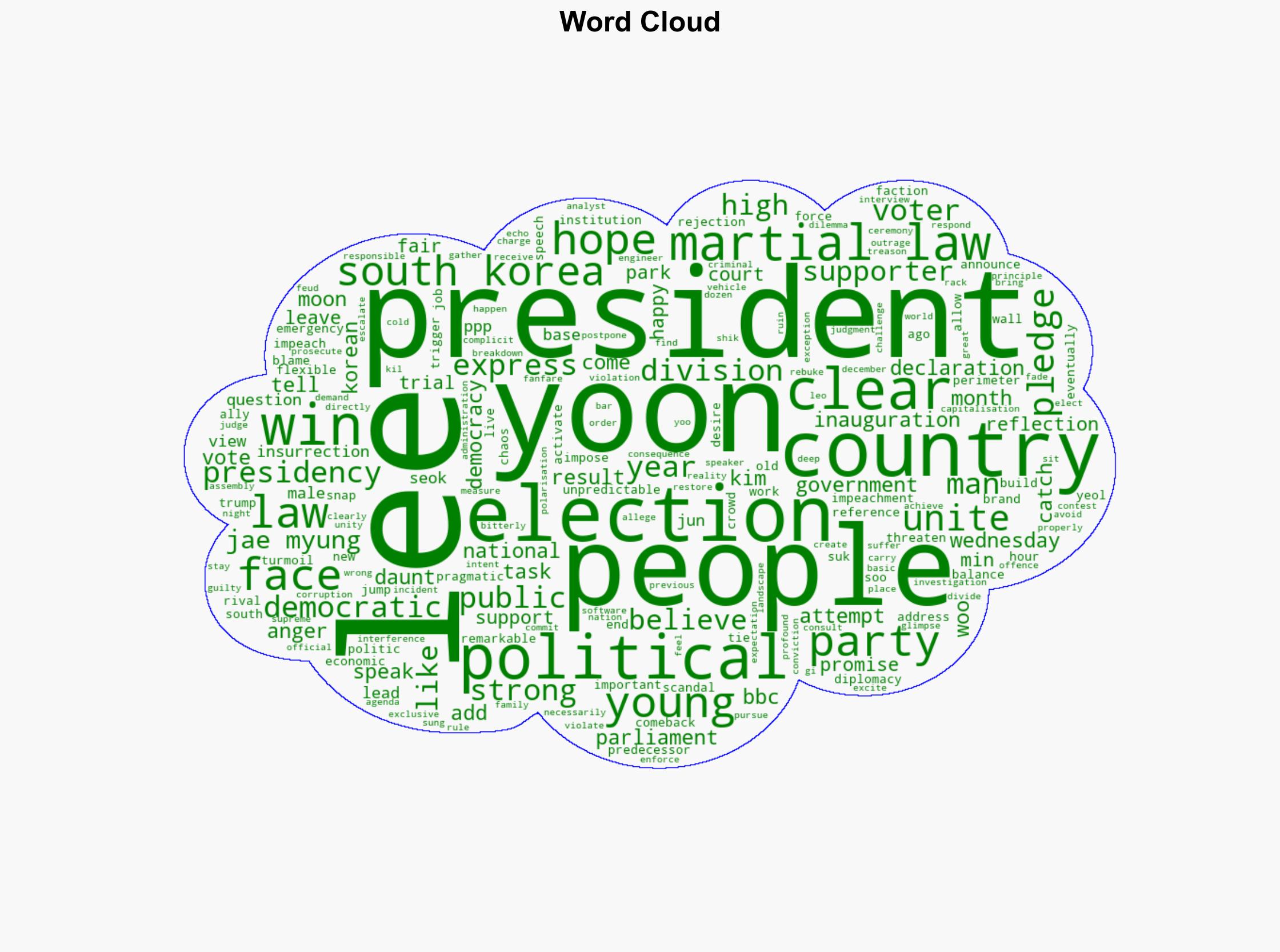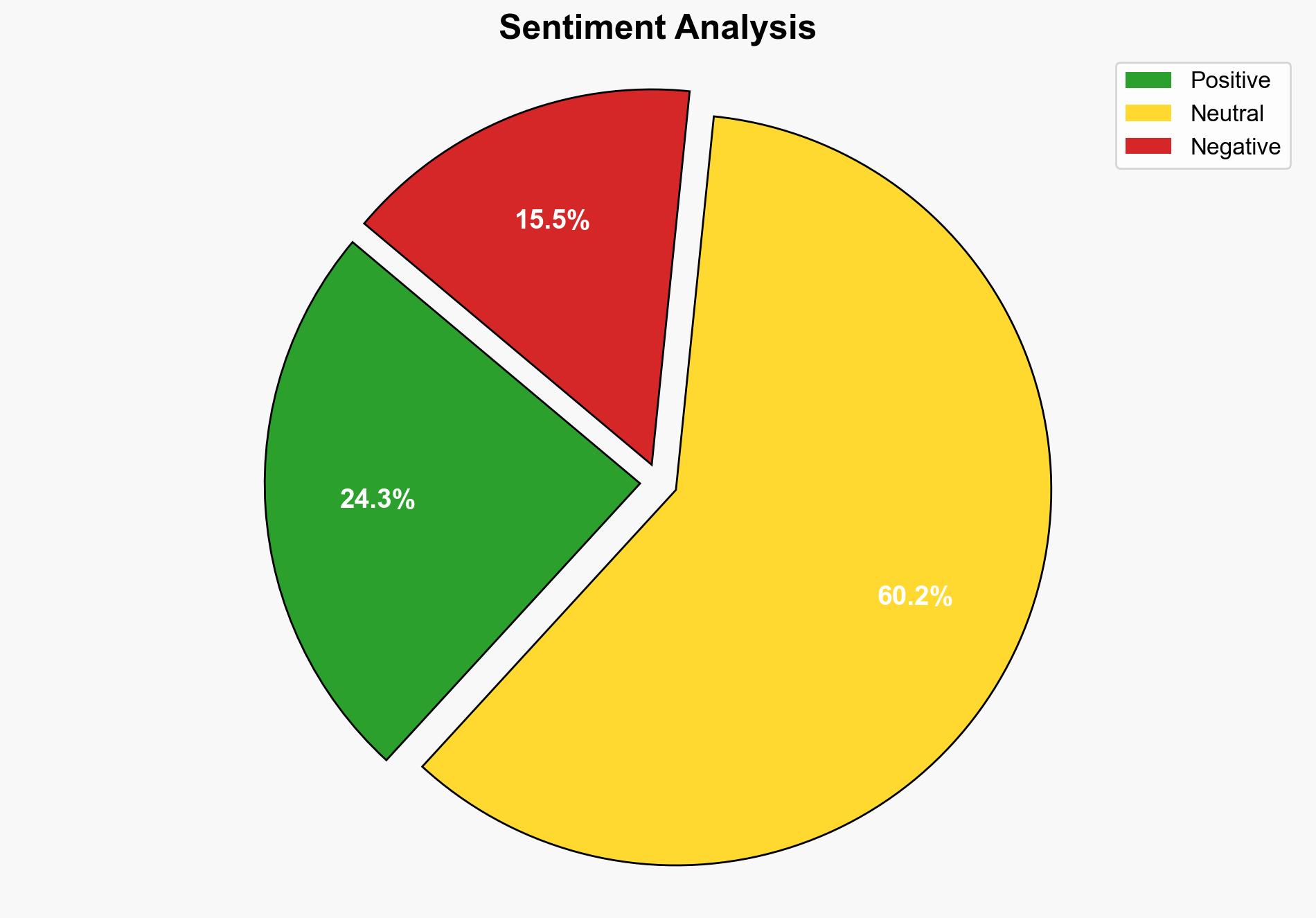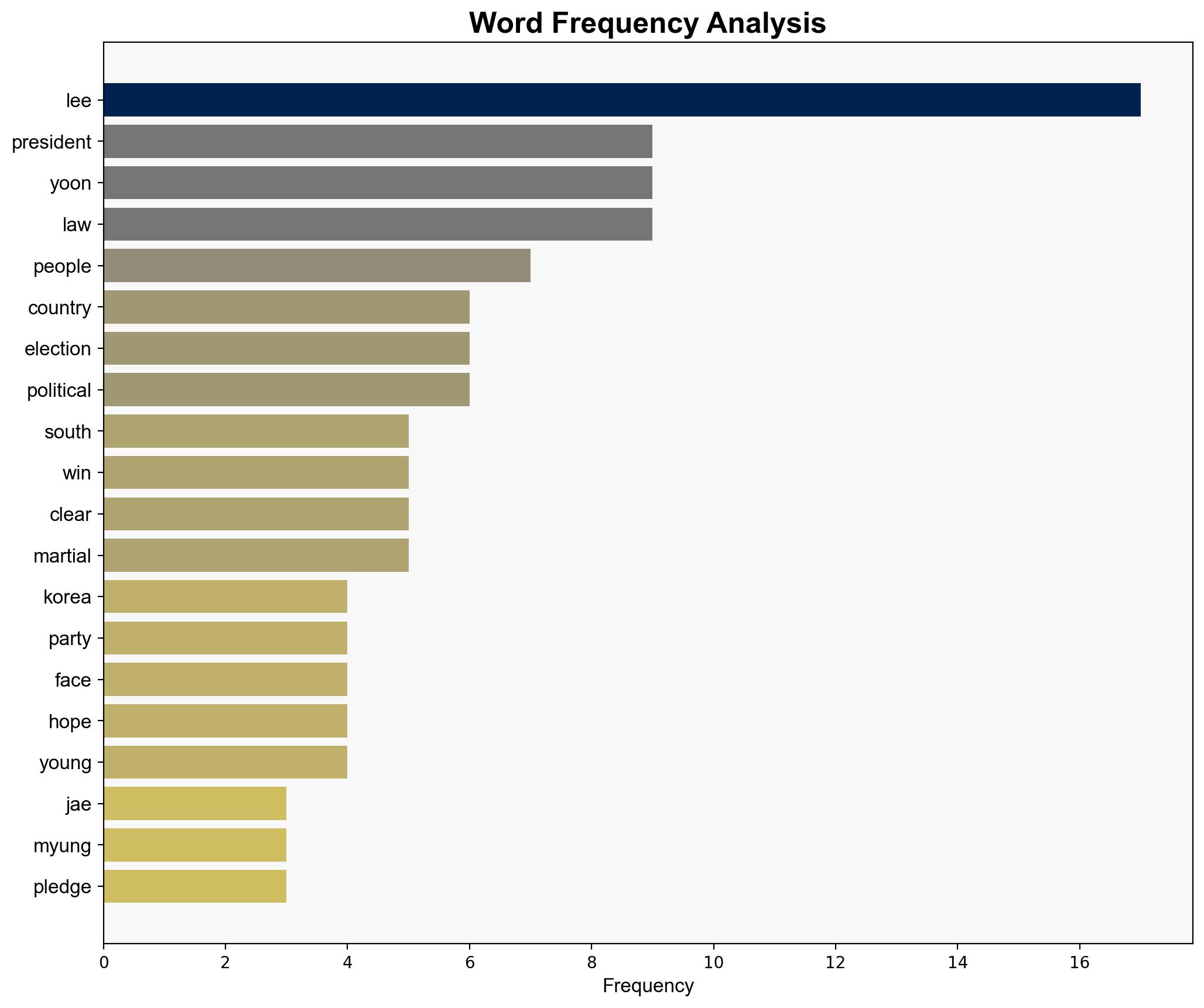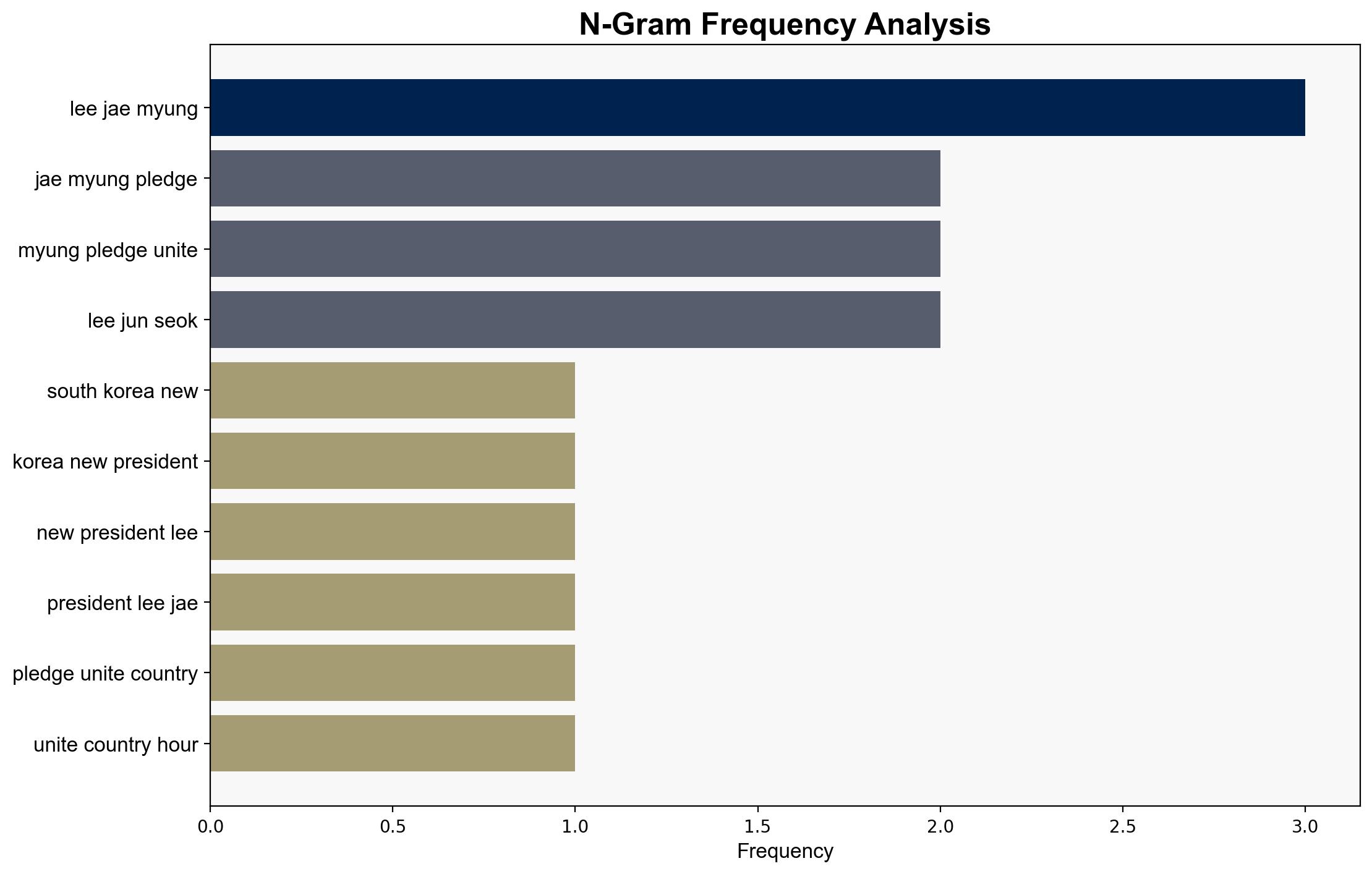South Korea’s new president Lee Jae-myung pledges to ‘unite’ country – BBC News
Published on: 2025-06-04
Intelligence Report: South Korea’s new president Lee Jae-myung pledges to ‘unite’ country – BBC News
1. BLUF (Bottom Line Up Front)
Lee Jae-myung, South Korea’s newly elected president, has committed to uniting a politically divided nation following a contentious election. His presidency follows a period of political instability marked by the impeachment of his predecessor. Lee’s success hinges on his ability to navigate internal divisions and maintain strategic alliances, particularly with the United States. Immediate challenges include addressing public discontent and managing potential legal issues that could undermine his administration.
2. Detailed Analysis
The following structured analytic techniques have been applied to ensure methodological consistency:
Causal Layered Analysis (CLA)
– **Surface Events**: The election of Lee Jae-myung and his pledge for national unity.
– **Systemic Structures**: Political instability stemming from previous administrations and the impeachment of Yoon Suk-yeol.
– **Worldviews**: A divided electorate with contrasting views on governance and democracy.
– **Myths**: The belief in strong leadership as a remedy for political chaos.
Cross-Impact Simulation
– Potential shifts in South Korea’s foreign policy could affect regional stability, particularly in relation to North Korea and China.
– Economic dependencies on the U.S. may influence domestic policy decisions.
Scenario Generation
– **Optimistic Scenario**: Successful unification efforts lead to political stability and economic growth.
– **Pessimistic Scenario**: Continued division and legal challenges weaken Lee’s administration, leading to further instability.
– **Neutral Scenario**: Incremental progress with ongoing political tensions.
3. Implications and Strategic Risks
– **Political**: Persistent division could hinder policy implementation and reform efforts.
– **Economic**: Uncertainty may impact investor confidence and economic performance.
– **Cybersecurity**: Potential vulnerabilities in national infrastructure due to political distractions.
– **Military**: Regional tensions could escalate if diplomatic efforts falter.
4. Recommendations and Outlook
- Promote inclusive dialogue to bridge political divides and foster national unity.
- Strengthen alliances with key international partners to ensure regional stability.
- Enhance cybersecurity measures to protect critical infrastructure.
- Scenario-Based Projections:
- **Best Case**: National unity leads to robust economic and political stability.
- **Worst Case**: Legal challenges and division result in governance paralysis.
- **Most Likely**: Gradual progress with ongoing political challenges.
5. Key Individuals and Entities
– Lee Jae-myung
– Kim Moon-soo
– Yoon Suk-yeol
– Woo Win-shik
– Park Sung-min
– Lee Jun-seok
6. Thematic Tags
national security threats, cybersecurity, counter-terrorism, regional focus





